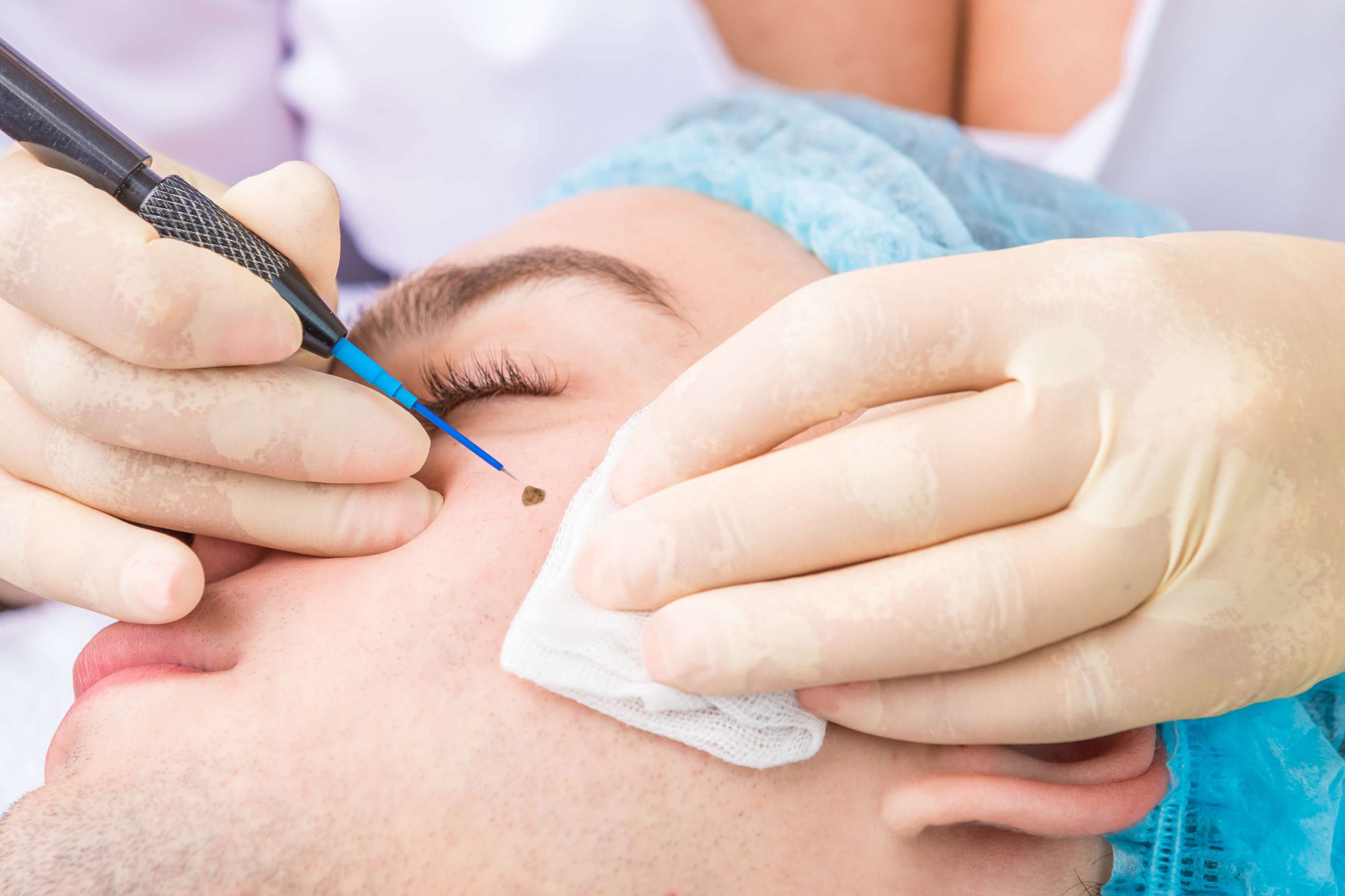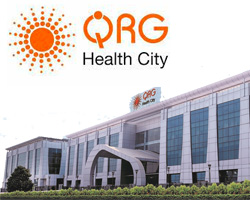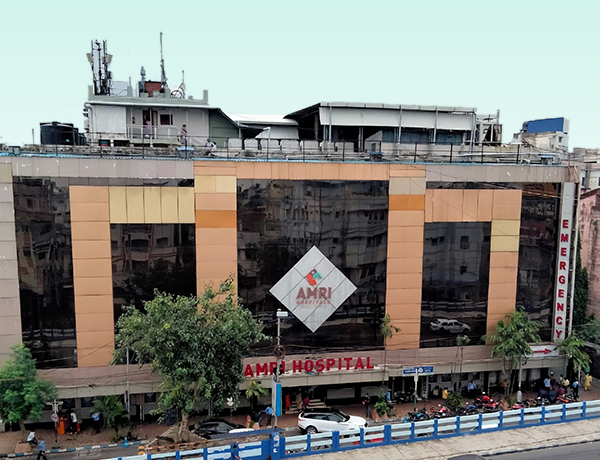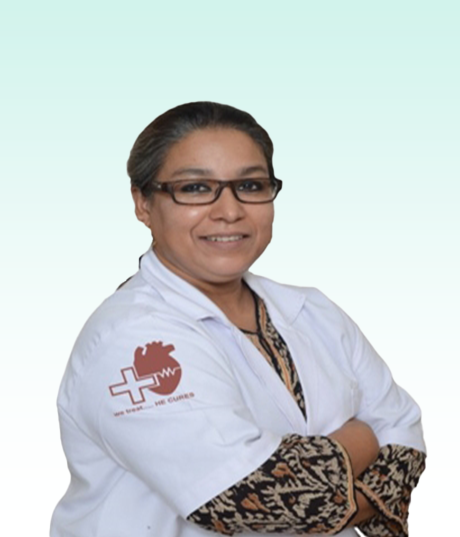Surgical Dermatology
Dermatological surgery is a sub-specialisation of surgery that treats all the conditions of the skin. It bridges dermatology and plastic surgery, as a dermatological surgical procedure often consists of removing the skin lesions and reconstructing the skin with medications or reconstructive surgery techniques.
Who Needs Surgical Dermatology
Surgical dermatology is essential for individuals who:
Have Skin Cancer: Patients diagnosed with skin cancers like basal cell carcinoma, squamous cell carcinoma, or melanoma may require surgical removal to prevent cancer from spreading.
Require Mole Removal: Suspicious or atypical moles may need surgical excision for evaluation and to rule out skin cancer.
Seek Cosmetic Procedures: Individuals looking to enhance their appearance through procedures like mole removal, scar revision, or skin tightening can benefit from surgical dermatology.
Need Skin Biopsies: Patients with undiagnosed skin conditions often undergo skin biopsies to determine the nature of their condition.
When to See a Specialist
You should consider consulting a surgical dermatologist if:
You have a suspicious skin lesion or mole that has changed in size, shape, or color.
Your dermatologist recommends a surgical procedure to address a skin condition.
You are interested in cosmetic procedures to improve your skin’s appearance.
Procedure
Consultation: The process begins with a consultation where the surgical dermatologist evaluates your condition and discusses treatment options. If it’s a cosmetic procedure, your goals and expectations are also considered.
Preparation: Before the procedure, you may be advised to stop taking certain medications, and the surgical site is cleansed and marked for precision.
Local Anesthesia: Most surgical dermatology procedures involve the use of local anesthesia to ensure you are comfortable and pain-free during the surgery.
Procedure: The specific procedure varies depending on the condition being treated. This may include excision, biopsy, cryotherapy, laser therapy, or other surgical techniques.
Closure: After the lesion or affected tissue is removed, the surgical site is carefully closed using sutures or other closure methods.
Monitoring: You may be monitored for a short time to ensure there are no immediate complications.
Road To Recovery
Recovery from surgical dermatology procedures varies depending on the type and complexity of the surgery. Most patients can resume normal activities shortly after minor procedures, while more extensive surgeries may require longer recovery periods. Dermatologists provide post-operative care instructions to facilitate healing and minimize scarring.
Risk Management
Dermatologic surgeons take measures to minimize risks associated with surgical dermatology procedures. Common risks include infection, bleeding, scarring, and changes in skin pigmentation. Proper wound care and adherence to post-operative instructions can mitigate these risks.
Benefits of Surgical Dermatology
Skin Cancer Treatment: Surgical dermatology plays a crucial role in the effective removal of skin cancers, contributing to high cure rates.
Precise Mole Removal: Suspicious moles can be precisely removed and evaluated to determine if they are cancerous or benign.
Cosmetic Enhancements: Surgical dermatology offers solutions for enhancing the appearance of the skin, including scar revision, mole removal, and wrinkle reduction.
Frequently Asked Questions
Will I have scars after surgical dermatology procedures?
Scarring is possible but can often be minimized with proper wound care and, in some cases, additional treatments like scar revision.
Are surgical dermatology procedures painful?
Most procedures are performed under local anesthesia, so discomfort is minimal during the procedure. Pain during recovery is typically managed with over-the-counter or prescription pain relievers as needed.
How long is the recovery period for surgical dermatology procedures?
Recovery time varies depending on the procedure. Minor procedures may require only a few days of recovery, while more complex surgeries may take several weeks.
Can surgical dermatology be performed on children?
Yes, surgical dermatology procedures can be performed on children when necessary, such as for the removal of skin lesions or cysts.
Is it possible to have cosmetic enhancements and medical procedures in the same visit?
In some cases, dermatologists may combine medical and cosmetic procedures during the same appointment, depending on the patient’s needs and preferences. This can save time and reduce the number of visits.
Treatment Plans
- Trauma & intensive care $59
- Aged Care $29
- Community Services $25
- Diagnosis & Investigation $48
- Medical & Surgical $82
- Mental Health $74
- Rehabitation $24
- Specialised Support Service $19
- Trauma & intensive care $59
- Aged Care $29
- Community Services $25
- Diagnosis & Investigation $48
- Medical & Surgical $82
- Mental Health $74
- Rehabitation $24
- Specialised Support Service $19
Treatians As The Best Choice
Treatians understand that seeking medical treatment abroad can be a daunting experience for patients and their families. That’s why the company offers end-to-end support to its clients, from the initial consultation to post-treatment care. The company provides personalized treatment plans that are tailored to meet the individual needs of each patient, and its team of dedicated professionals is always on hand to provide guidance and support throughout the entire process. Contact us at +91-7982312582, drop your email [email protected]
- Trauma & intensive care
- Aged Care
- Community Services
- Diagnosis & Investigation
- Medical & Surgical
- Mental Health
- Rehabitation
- Specialised Support Service
Service Recipient Says

Oxmox advised her not to do so, because there were thousands of bad Commas, wild Question Marks and devious.
Kolis Muller NY Citizen
Oxmox advised her not to do so, because there were thousands of bad Commas, wild Question Marks and devious.
Kolis Muller NY Citizen




















Oxmox advised her not to do so, because there were thousands of bad Commas, wild Question Marks and devious.
Kolis Muller NY Citizen